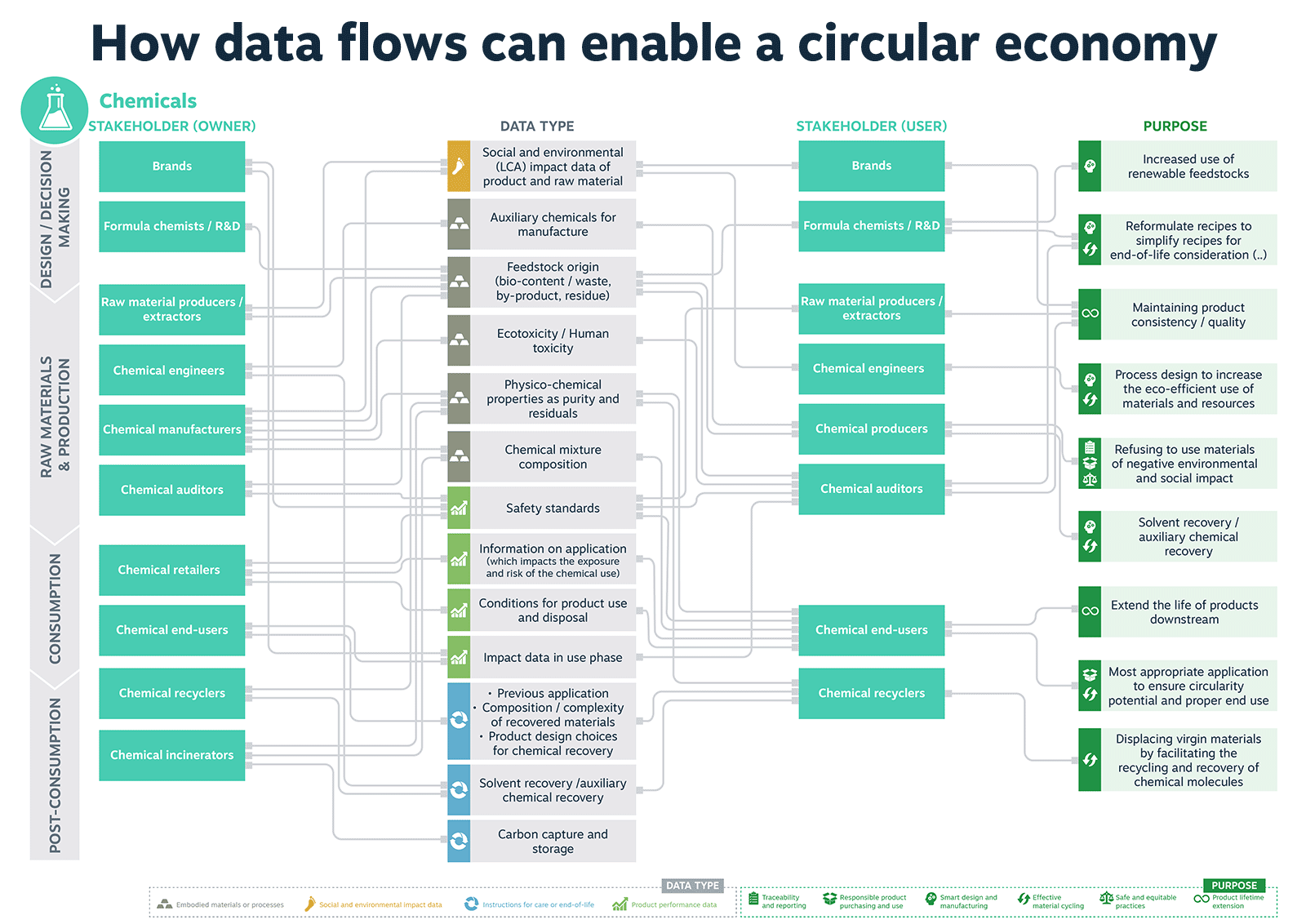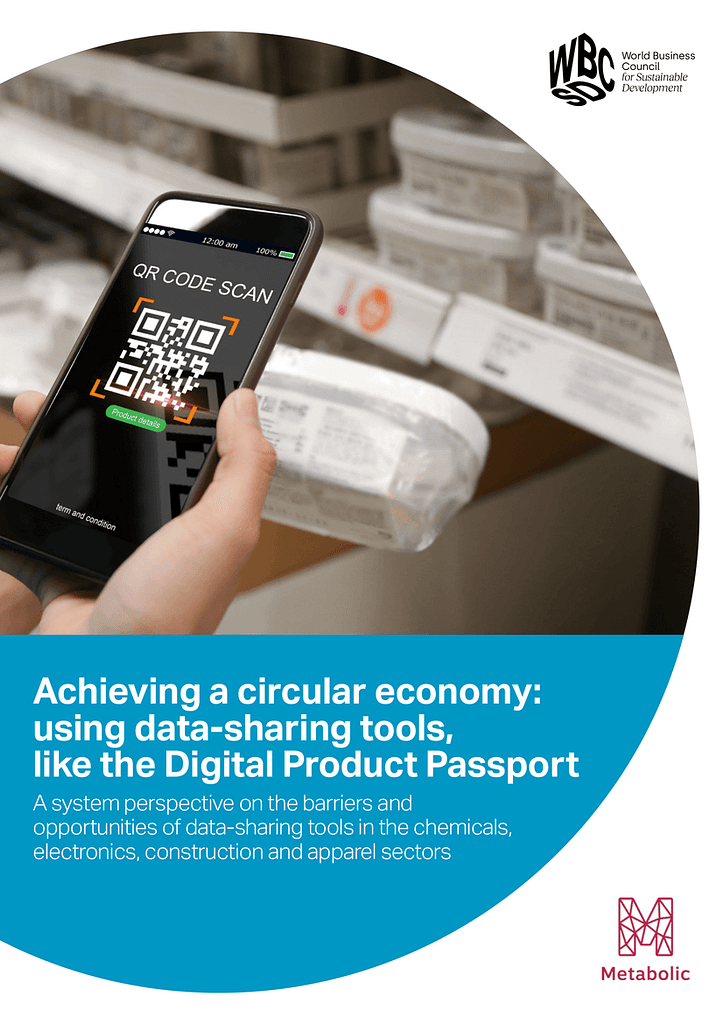Digital Product Passports and the Circular Economy
A systems perspective on the barriers and opportunities of data sharing tools, like a Digital Product Passport, in the chemical, electronics, construction, and apparel sectors.
The European Commission plans to introduce a Digital Product Passport (DPP) for all products offered on the European market. Using a systems perspective, Metabolic identified opportunities for the circular economy that would open up if data was intentionally shared across value chains. The study also delves into industry apprehensions surrounding the implementation of these passports, providing an overview of the initiative’s potential benefits and challenges.
- Client: World Business Council for Sustainable Development (WBCSD)
- Date: August 2023
The sharing of data disrupts industry norms
Knowledge is power, so in a competitive economic system, companies are selective with the information they share and publish. The EC’s proposal for the Digital Product Passport challenges this dogma. It will require organizations to make their data available to actors across product systems. This would enable these actors to use that data to close material loops within a sector, streamline reporting, and promote circular behavior in consumers and organizations. Making a product system circular and truly sustainable requires all the stakeholders in a sector to collaborate.
Systems lens on cross-sector data sharing
We mapped four sectors: chemicals, electronics, textiles, and construction. After identifying the key stakeholder groups, we conducted interviews to understand their needs and concerns with regard to the DPP and the EC’s goals. For each sector, we researched the opportunities to increase circularity and identified the data dependencies for the actors that are expected to deliver on them. These findings were consolidated in four dynamic system maps that showed the relation between data owners, data, data users, and the circular outcome.
Embracing the Digital Product Passport
Our analysis provides actors across different sectors with a perspective of how Digital Product Passports could enable circularity in their sector. Without discarding the practical concerns, we created a vision of the future where the sharing of data is used to benefit the collective. The dynamic sector maps help organizations to identify the role that they can play in realizing that future. At the same time, it helps regulators to identify the most leveraged data that should be included in the DPP.







